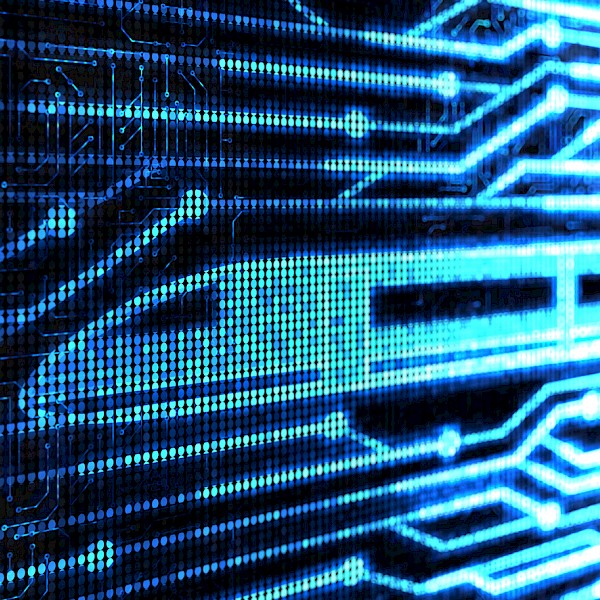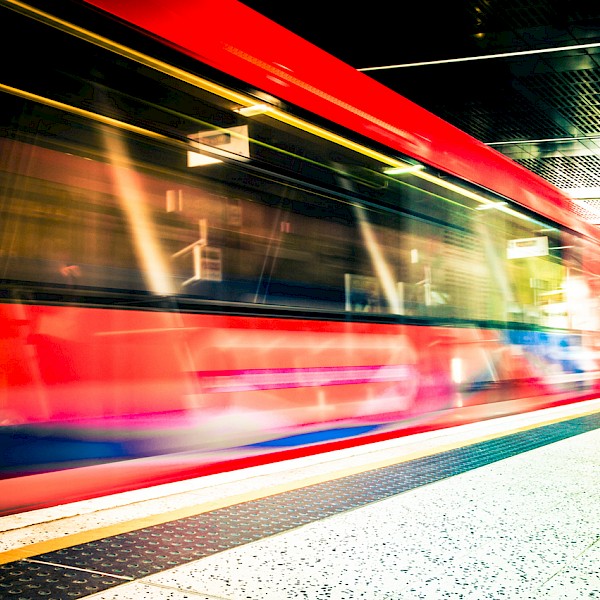Trains with Brains: How can AI and Digital Transformation improve the railway experience for consumers?



Today, railway services are just beginning to see the full benefits of the digital revolution of the last 20 years. AI, IoT and a range of other innovations are revolutionising how the physical railway infrastructure is managed and operated. Meanwhile, technologies such as 5G and wireless are transforming railway passengers’ experiences as customers.


It’s an experience that is dramatically evolving. Seatback-mounted TV screens – once only seen on international flights – are increasingly common; and Wi-Fi is expected as standard. Naturally, this makes travelling far more pleasant; and gives business passengers the opportunity to make considerably better use of their time aboard. In the near future, we can expect 5G to enable super-fast 4K video streaming for passengers – and such improvements can significantly boost passengers’ satisfaction with the railway system. At the same time, though, 5G can also allow rail operators to collect massive amounts of data on the performance and condition of assets and infrastructure.
Fetch.AI is one company that has plans to track the countless moving parts of the railway network – and to allow them to talk to each other (using AI, IoT and blockchain). This means not just giving every carriage a Wi-Fi connection, but plugging a vast range of components and hardware items into the internet.
“[It] can be as simple as a… rail carriage, telling you where it is, or a bathroom lock that is no longer operational,” Joshua Croft, Fetch’s ecosystem coordinator and software developer, told Railway Technology. “Today, managing and keeping track of assets is a complex task in an industry with billions of pounds tied up in infrastructure. Wouldn’t it be better if those assets could tell us where they are?”
The platform has the potential to do much more than that, though – for example, allowing level crossings to automatically communicate with trains as they approach.


ProRail, which is responsible for carrying out maintenance on the Dutch national railway network, has begun to roll out just such a network of IoT sensors across its assets in recent years. These sensors don’t just monitor the condition of tracks and signals, though. Instead, they are connected to a predictive maintenance system which uses AI to forecast when equipment is about to fail, based on its performance and history and on algorithmic modelling.
This just-in-time maintenance model minimizes downtime and reduces the need for disruptive manual inspection – hence boosting efficiency and enabling better use of equipment and resources. ProRail’s system has reportedly driven a 25% decrease in failures (covering sign-posts, switches, overpasses and detection systems); furthermore, the technology has been credited with achieving a 3% increase in the number of trains running on time.
ProRail has even set about incorporating passengers’ phones into its sensor network. This comes via a customer app which records when the train goes over a bump. If the firm receives enough reports from a single location on the line then it will be flagged, and workers will be sent to carry out inspections and take further action, as required.
Belgium’s state-owned rail company Infrabel, has set out on a similarly large-scale digitalisation project. Under the ‘Smart Railway’ program, Infrabel has implemented a predictive analytics infrastructure, which incorporates data points such as the visibility of sign-posts, changes in power consumption and possible overheating in trains' shaft sleeves. This information is compiled and then integrated into a single, all-encompassing data pool, spanning Infrabel’s network.
And the company has some stiff challenges: passenger numbers have increased by 50% since the year 2000; high-performance trains are putting increasing strain on tracks; and a busier schedule has meant that maintenance is more disruptive and hence harder to coordinate. Fortunately, digital innovations can assist on all fronts here, enabling tighter scheduling and a higher standard of maintenance and repair – and ensuring safety for both passengers and workers.
Another development that is augmenting asset inspection is the use of autonomous drones. These can be set on pre-planned flight paths, in order to monitor tracks and other assets over long distances, working quickly, efficiently and with minimal human intervention. Automation can also transform the role of train drivers. Thameslink, for example, has self-driving trains which can increase the capacity of congested routes. Nevertheless, they retain human drivers who check platforms and close the doors before leaving stations.


Digital transformation is certainly no small thing – but it holds huge potential and can enable operators to make vastly better use of both their assets and their resources. What’s more it provides a granular view of the network that it would have been simply impossible for rail firms to have obtained in the past.
“Digitalisation really does contribute towards improving the effectiveness and efficiency of maintenance and thus to a safer, more reliable and better-quality rail network,” commented, Luc Vansteenkiste, Infrabel’s Director-General of Asset Management, writing in Global Railway Review.
Innovation may be daunting – but it presents an enormous opportunity for change.

Empiric is a multi-award winning business and one of the fastest growing technology and transformation recruitment agency's specialising in data, digital, cloud and security. We supply technology and change recruitment services to businesses looking for both contract and permanent professionals.

Read more (pdf download)
Empiric are committed to changing the gender and diversity imbalance within the technology sector. In addition to Next Tech Girls we proactively target skilled professionals from minority groups which in turn can help you meet your own diversity commitments. Our active investment within the tech community allows us to engage with specific talent pools and deliver a short list of relevant and diverse candidates.
For more information contact
02036757777